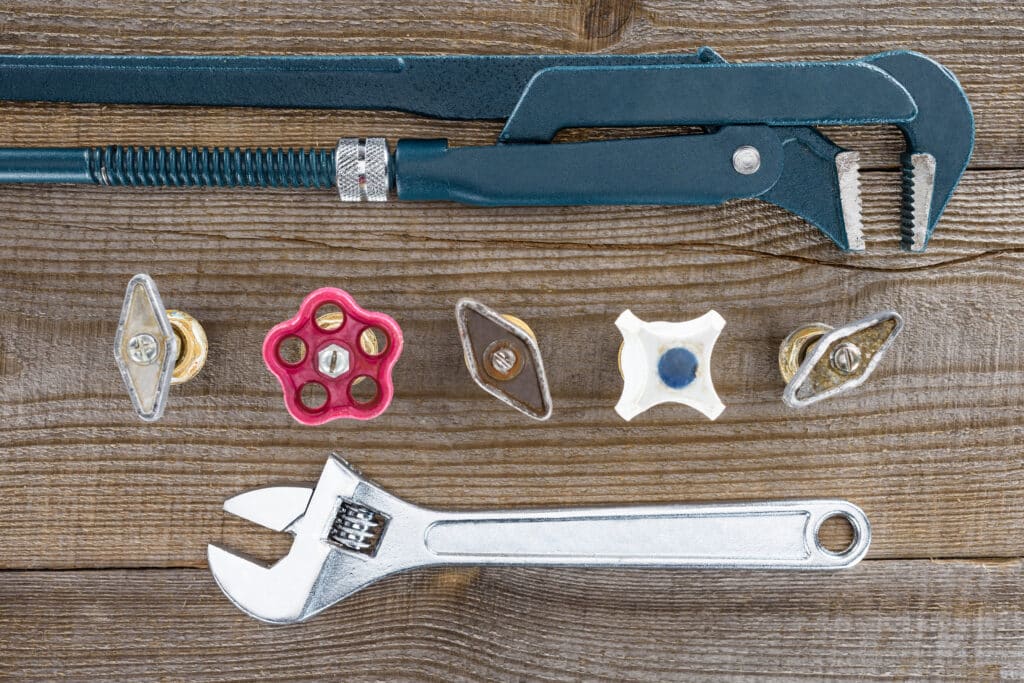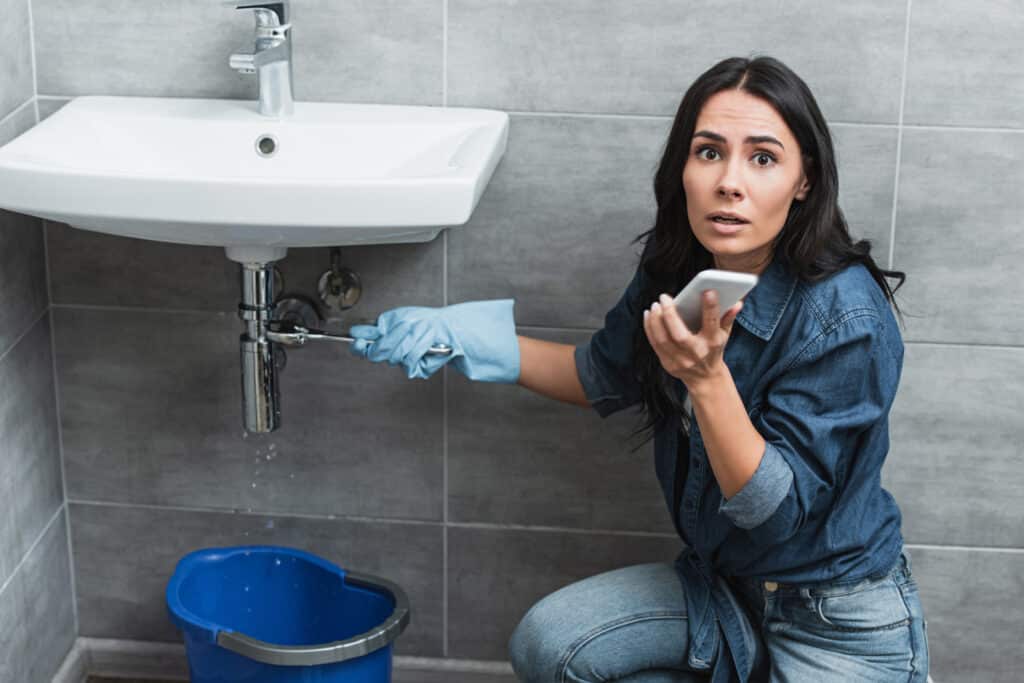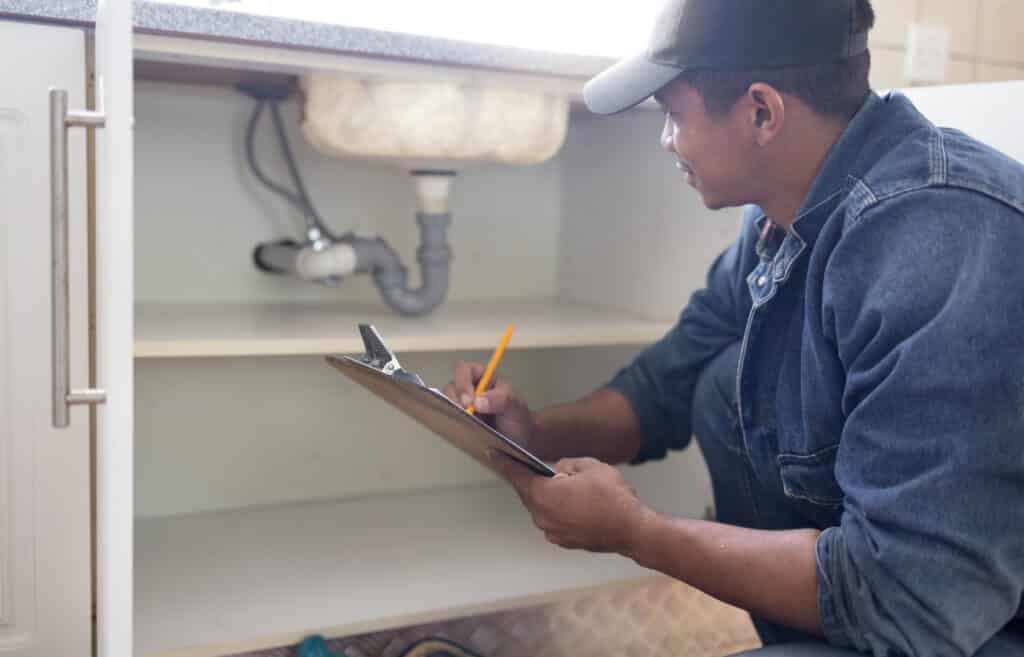Maintaining the plumbing system in your home is essential for its proper functioning and to avoid costly repairs. Pipes are crucial for delivering water to various places. However, age, use, or external factors can deteriorate pipes. This causes the need for pipe repairs. Knowing when your home needs pipe repairs is essential to prevent water damage and maintain your plumbing system’s integrity. In this guide, we’ll look at signs your home needs pipe repairs, give tips on how to fix them, and provide tips on how to prevent them in the long term.
Signs Your Home Needs Pipe Repairs

Low Water Pressure
Low water pressure throughout your home is one of the most common indicators of pipe issues. If water pressure drops when using faucets or showers, it may indicate a blockage, corrosion, or leak in your pipes.
Unpleasant Odors
Foul odors emanating from drains or pipes are a telltale sign of potential pipe problems. Unpleasant odors may occur when food particles or grease accumulate in your plumbing system, resulting in obstructions.
Visible Leaks or Water Damage
If you notice water stains, pooling water, or dampness in your home, it indicates the presence of pipe leaks. We should fix a leaking pipe immediately. Ignoring these leaks can lead to mold growth, structural damage, and costly repairs.
Unexplained Spike in Water Bills
If your water bills increase significantly without using more water, it could indicate the presence of a hidden leak. Even minor leaks can lead to water wastage over time, causing your utility bills to skyrocket.
Strange Sounds
Gurgling or banging noises from your pipes when using plumbing fixtures may indicate air pockets, blockages, or loose pipes. Do not ignore these sounds, which often indicate more severe pipe issues.
Corrosion or Rust
Checking pipes for corrosion, rust, or discoloration is crucial to finding old pipes that may leak or burst. Older homes with galvanized steel or iron pipes are susceptible to corrosion.
Slow Drainage
The buildup of waste, partial obstructions, or pipe issues frequently results in sinks, showers, or bathtubs draining slowly. You can fix minor blockages yourself sometimes. However, if water drains gradually all the time, it could indicate a larger plumbing problem.
Water Discoloration
If the water from your faucets is discolored or rusty, it could indicate pipe corrosion or deterioration. This can affect the quality of your water and indicate potential leaks or pipe damage.
Pests or Insects
The presence of pests or insects like cockroaches, ants, or rodents near your pipes or plumbing fixtures could indicate hidden water leaks. Moisture attracts pests, and they can enter your home through small openings to search for water sources.
Frequent Clogs
It may indicate pipe issues if you have frequent clogs in your drains or toilets, even with regular cleaning and maintenance. Persistent clogs can indicate blockages, damaged pipes, or improper slope in your plumbing system.
How to Address Pipe Repairs

Identify the Source of the Problem
Before attempting any repairs, it’s crucial to identify the exact location and cause of the pipe issue. If you’re having plumbing issues, a professional inspection may be necessary. This inspection would use specialized plumbing cameras to access hard-to-reach areas of your plumbing system.
DIY Solutions
DIY solutions like a plunger, drain snake, or pipe sealant may suffice for minor pipe issues such as clogged drains or small leaks. However, it’s essential to exercise caution and know when to call a professional if the problem persists or worsens.
Professional Plumbing Services
Don’t hesitate to contact a licensed plumber for more complex pipe repairs or issues beyond your expertise. Professional plumbers have the knowledge, experience, and equipment to diagnose and resolve plumbing problems safely and efficiently.
Preventive Maintenance
Regular preventive maintenance can help prevent pipe repairs by addressing minor issues before they escalate. This includes routine drain cleaning, inspecting for leaks, and replacing worn-out pipes or fittings.
Upgrade to Modern Plumbing Systems
If you frequently encounter plumbing problems, consider upgrading to more durable materials such as copper or PVC pipes. These materials can help you avoid future repairs and save you money in the long run. Additionally, this can prevent any potential future maintenance.
Upgrading to modern plumbing systems can be a wise investment for pipes to last longer and avoid corrosion. These systems are less likely to corrode and can offer greater longevity. By upgrading, you can avoid the need for frequent repairs and replacements.
Tips for Preventing the Need for Pipe Repairs

Preventing pipe repairs is often more cost-effective and less disruptive than addressing issues after they occur. Here are some tips to help you maintain your home’s plumbing system and minimize the need for repairs.
Regular Inspections
Schedule annual inspections of your plumbing system by a licensed plumber. A professional inspection can help identify potential issues early on and prevent costly repairs.
Drain Maintenance
Avoid pouring grease, oil, or food scraps down your drains, as they can contribute to clogs and blockages. Use drain strainers to catch hair and debris, and consider scheduling routine drain cleaning to prevent buildup.
Winterization
In cold climates, winterize your plumbing system to prevent frozen pipes. Insulate exposed pipes, disconnect outdoor hoses, and keep your home heated consistently during cold weather.
Monitor Water Pressure
Keep an eye on your home’s water pressure and address any sudden changes promptly. High water pressure can strain your pipes, leading to leaks and other issues, while low water pressure may indicate a blockage or leak.
Proper Usage
Use plumbing fixtures and appliances properly to avoid unnecessary strain on your pipes. Avoid flushing anything other than toilet paper down the toilet, and use your garbage disposal sparingly to prevent clogs.
Tree Maintenance
If trees or shrubs are near your home, prune them to prevent roots from invading your plumbing system. Tree roots can cause extensive damage to pipes, leading to leaks and blockages.
Regular Maintenance
Regular maintenance is essential to prevent problems. Check for leaks, inspect exposed pipes for corrosion, and replace worn-out fittings or fixtures. Keep an eye out for these issues and address them promptly to avoid bigger problems. Addressing minor issues promptly can prevent them from turning into costly repairs.
Educate Household Members
Educate everyone in your household about proper plumbing practices to prevent common issues like clogs and leaks. Teach them how to use plumbing fixtures responsibly and what to do in a plumbing emergency.
To keep your home’s plumbing system healthy, it’s essential to take preventive measures and stay proactive with maintenance. By doing so, you can reduce the likelihood of needing pipe repairs.
Contact Workhouse For Pipe Repairs
It’s essential to recognize the signs of pipe damage in your home to prevent water damage and maintain your plumbing system. Signs such as low water pressure and leaks suggest there may be pipe issues. When you notice these signs, contacting a professional plumber for assistance is best.
If you’re looking for reliable pipe repairs or plumbing services, consider contacting Workhouse Plumbing. With their experienced team of plumbers and commitment to quality work, you can count on them to address your home’s plumbing needs. Don’t wait until it’s too late – act now to ensure your home’s plumbing system remains safe, functional, and long-lasting.







